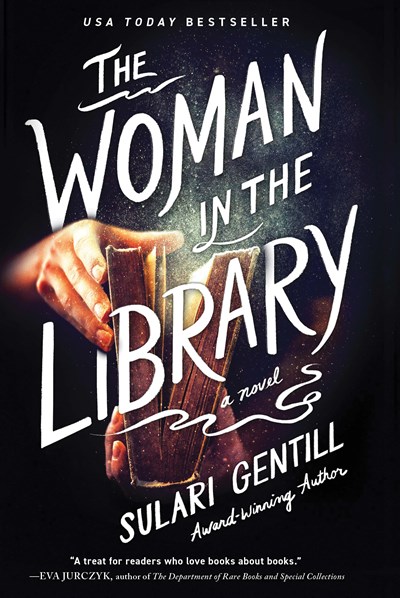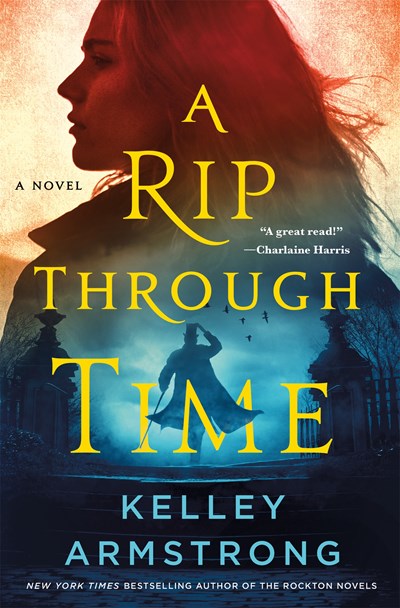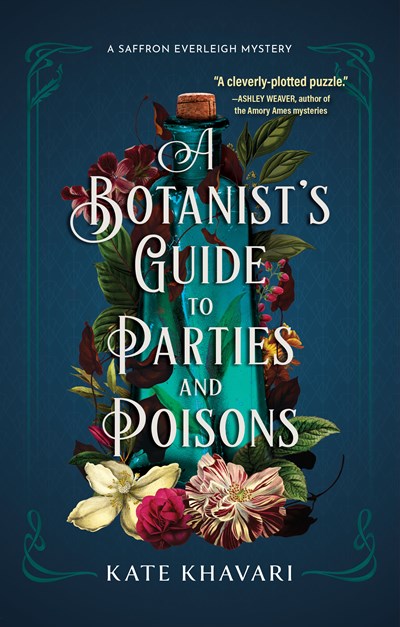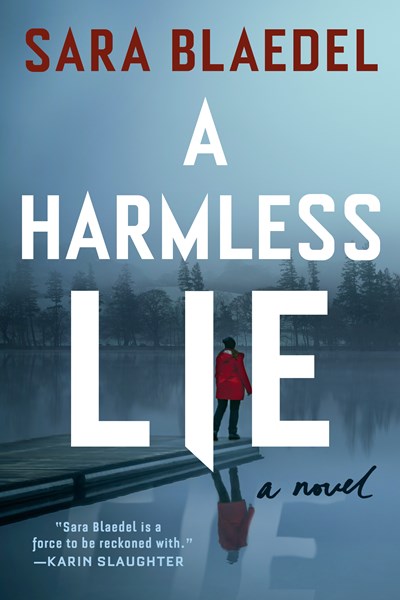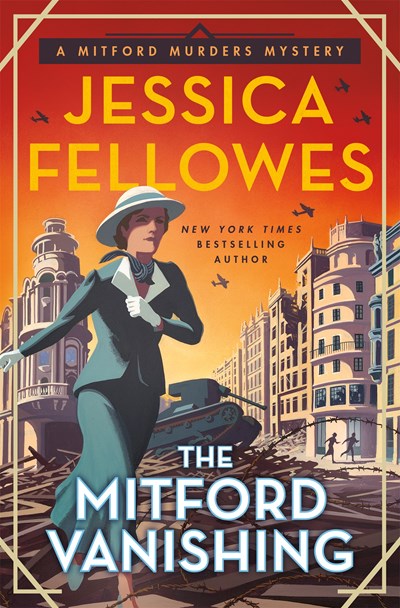What the world needs now is more of the delightful Nonna Maria, an elderly widow who’s lived her whole life on the beautiful island of Ischia—18 miles from Naples—and is a bit of a legend. As famous for the espresso she brews as the advice she dispenses, she’s known throughout the island and, in turn, seems to know every native. When trouble comes calling, it’s Nonna Maria people turn to for help, trusting her instead of the local carabinieri. More of a “fixer” than your traditional detective, Nonna Maria takes on two cases in this book. In one, a young woman is worried that her fiancée isn’t what he seems, and Nonna Maria discretely moves her into hiding while she investigates. In the other, the old captain of a tour boat—and life-long friend of our investigator —is found dead, and Nonna Maria won’t accept that the death of this born sailor was an accident. To fix these problems, the intrepid widow calls on old friends, her parish priest, a nephew, a grandson, and even the head of a Neapolitan crime family, all while sharing with readers the delights of Ischia. Never too cutesy and plenty tough, Nonna Maria will delight fans of Italian mysteries and cozy enthusiasts who love a good armchair trip.
Mystery & Detective
Annalisa Vega is back in the second of Schaffhausen’s series, looking at the inner life of a troubled Chicago PD detective. In the first book, Gone for Good, Annalisa pursued the killer of a family friend, ultimately finding uncomfortable truths far too close to home. (No spoilers!—you don’t have to read the first book to enjoy this one, but it’s well worth the read while you wait for book 2). Now, the detective is still partnered at work with her ex-husband-with-benefits, Nick, and doing her own sort of time as other cops give her the cold shoulder for fighting against crookedness within the force. The book opens with a headscratcher for Annalisa and Nick. Not only is a successful officer (who has perhaps too nice a home and car for his salary) shot dead in his bed while his wife is untouched, she claims that the killer was “a frogman,” a murderer wearing a scuba-diving suit. What follows is a look at Annalisa’s life as someone who can’t let things go—bad enough when it’s Nick, much worse when she’s ordered off cases and still won’t stop. Schaffhausen again weaves family dynamics, terrible decisions, and long-festering secrets with love and bitter regret to create a riveting story. The delightfully exasperating main character and cast are a bonus.
A straightforward mystery that is brought to life by three wonderful characters. Thirty-something Hudson Miller is down on his luck. His boxing career is over, he’s working as a bouncer, and he’s couch surfing with friends. To make matters worse, Hudson’s estranged father is murdered, shot in the back of the head while sitting at his desk at his salvage yard in deeply rural Flint Creek, North Carolina. To Hudson’s surprise, he inherits the business, and—with no other options apparent—goes home to run Miller’s Pull-a-Part. He also takes on the job of finding his father’s murderer, helped out by Charlie Shoaf, a Vietnam vet who more or less comes with the salvage shop. When a corpse is found in the trunk of a salvaged vehicle, and a cache of firearms is discovered as well, Hudson realizes that his father’s life was a whole lot different than it appeared. Add to the mix the self-assured, brilliant teenager Lucy Reyes—who is seeking answers to her own family tragedy—and you’ve got a great threesome. I have no idea of the author’s intent, but I’d love to hear more from Hudson, Charlie, and Lucy—their chemistry is dynamite. Fans of the TV series Ozark will love this book.
Four strangers—two men, two women, all twenty-somethings—are sharing a table in the grand reading room of the Boston Public Library when a woman screams. They have no idea who she is, where she is, or why she screamed, but it does break down the barriers among the four, and by the time they leave the library, they are fast becoming friends. The crew includes a novelist; a law student; a psychology grad student; and our protagonist, Winifred, known as Freddie, a novelist who hails from Australia. It turns out a woman was murdered in the library, and the fab four take it upon themselves to investigate. But when one of the four is attacked, they begin to realize that there may be a connection between them and the murdered woman. And that one of them may be the murderer. Meanwhile, each chapter ends with correspondence to the author of The Woman in the Library, who lives in Australia, from a Boston-based friend who’s helping her with language and locale—until his communiques take a sinister turn. Readers who enjoy a playfulness in their fiction will be delighted by this book-within-a-book. For fans of Anthony Horowitz.
In too many historical mysteries and science fiction novels, other times and places are strangely devoid of anyone who’s not straight and white. Not so the science-fiction-tinged Victorian era envisaged by prolific author Armstrong (A Stitch in Time series). The book opens in 2019, with Vancouver, BC detective Mallory Atkinson visiting Scotland to tend to her dying grandmother. Hearing a woman cry out for help in an alley, she intervenes in what turns out to be an apparition of an attack, only to enter the vision and wake up in 1869 as a teenage housemaid. She lands in the Edinburgh home of undertaker Dr. Duncan Gray, who’s using his trade to become an early forensic scientist. Gray and his widowed sister, Isla, are somewhat cut off from society, Gray because he was born from an affair his father had with a woman whom the family believed to be Indian—it was all kept hush-hush—and his sister because she’s a Victorian woman of means, expected to stay home. Readers will enjoy watching Mallory as she struggles to fit in and help Gray find the man—a serial killer, though that term is unknown—who’s posing bodies in sensational ways around the city. For those who enjoy Julie McElwain’s Kendra Donovan series, in which an FBI agent time travels to 1816 London.
University College London, just after the Great War, is where bright young Saffron Everleigh pursues her botany studies and, as an assistant researcher, is the only female employee in her department. While Saffron’s beyond enthusiastic about her field and a gifted botanist, she endures sexist put-downs and even a lewd attack by a professor who has retired in place and lives on pipe smoke and sexual harassment. The botany department’s men are gearing up for a research expedition to the Amazon (the gentlemen never mention seeking input from any Brazilians as to local flora, adding to the musty flavor of the academic setting). Before they leave, disaster strikes: a professor’s wife collapses at a department party, perhaps a victim of poisoning. This series debut, also the author’s first foray into historical fiction, sees Saffron and her love interest, Alexander Ashton, sleuthing their way through department politics, botanical facts, and the sadder aspects of human nature as they figure out whodunit and learn more about their field along the way. Readers will learn more too, but unobtrusively while they cheer for Saffron and Alexander to for God’s sake have that kiss. Especially recommended for fans of Sujata Massey’s Perveen Mistry series, which stars another pioneer, the only female lawyer in 1920s Bombay.
With its nine volumes, the acclaimed Detective Louise Rick series can be off-putting. But the newest title, A Harmless Lie, is actually a good entrance point. Sure, you’re missing plenty of backstory, but Blaedel is careful in not assuming too much knowledge on the reader’s part. Here, Louise is in Thailand, on sabbatical before returning home and taking the position of Copenhagen’s Head of Homicide, when she gets a call informing her that her brother Mikkel has been hospitalized after attempting suicide and that his wife, Trine, abandoned him and their children just days before. Louise heads off to her claustrophobic home town of Osted, only to confront a withdrawn Mikkel, her anxious parents, and the gradual realization that her brother is being investigated for Trine’s murder. Concurrently, her good friend Camilla, a journalist, is looking into the decades-old disappearance of a teen girl whose body has just been discovered, a girl who happened to be a classmate of Trine. While crawling with cops, this book is hardly a police procedural. It’s a deeply emotional dive into family, community, and the power of secrets.
We have cozies. We have thrillers. But what about mensch mysteries? Because Amos Parisman, AKA the oldest living Jewish PI in Los Angeles, is the definition of a real mensch. In this third book in the series, Amos comes out of retirement—a retirement he doesn’t want—to help the police investigate the murder of a homeless woman, whose corpse he discovers in the bottom of a garbage bin. Soon enough, that murder is followed by others, until it becomes clear that Amos and his sidekick, Omar, have a serial killer on their hands. While the search for the killer provides the underpinning of the novel, there’s always a lot more happening in an Amos Parisman mystery than just the crimes. Here, Amos does a lot of research into the homeless—so often invisible—and the discomfort they provoke in much of society. Also prominent in this volume is Amos’s poignant relationship with his wife, Loretta, who’s now living in a nursing home as she has advanced dementia, and his growing relationship with Mara, whose husband also lives in the home. A wonderful voice, great storytelling, and a completely unique character.
The Mitford sisters, six eccentric socialites and political renegades in the interwar years in England, encountered a frightful number of murders in their day, at least as told in Fellowes’s glamorous historical series, now in its fifth installment. This time, Decca, second-youngest daughter of patriarchal Lord Redesdale and his long-suffering wife, Sydney Bowles, is missing. The family suspects that the 18-year-old has run off with her second cousin, Churchill’s nephew Esmond Romilly, to marry him and fight on the side of the anti-facists in the Spanish Civil War (which Decca and Esmond did in real life). Enter the Mitfords’ former maid Louisa and her husband, Guy, proprietors of the Cannon & Sullivan detective agency. Hired to look for Decca, Louisa nervously embraces the fledgling rights of women in 1937, using her maiden name for work and leaving the couple’s baby with sitters. Indeed, she’s far more advanced than the Mitford “girls,” whose blithely colonial ways color their every move. Fellowes’s at times very sad, often funny story stands out for its unusual, Spanish Civil War backdrop; it also offers pleasingly scathing treatment of Nazi sympathizers, exciting chases from England to Spain and back (repeatedly!), and an extraordinarily tense closing scene. While this works as a standalone, go back to the earlier books for a treat.
Anyone who’s worked in publishing will recognize the low pay, deadline whirlwind, and scramble for recognition facing Carmen Valdez, a Miami transplant in New York. Worse, she’s a secretary trying to advance in a man’s world within a man’s world—comics publishing in 1975. Male colleagues sometimes show up drunk and their work is barely passable. Still, Carmen’s boss, whose father started the company, reminds her that “in the real world, we grant jobs based on experience and merit” when she gives him her comics scripts. Then her smoking buddy at work, Harvey, proposes to help by submitting a project by the two of them, but mainly by her, as his, and to reveal her authorship once it’s a success. Things don’t go according to plan, with not only Carmen’s professional future but also her safety jeopardized by a killer targeting her circle. Complementing this puzzling whodunit is a major plus for comics and graphic novel readers: Segura’s insider view of the comics industry and its history, as well as his spot-on chronicling of the too-frequent backstabbing among striving artists. For fans of Zakiya Dalila Harris’s The Other Black Girl, another look at a young woman trying to make it in publishing




